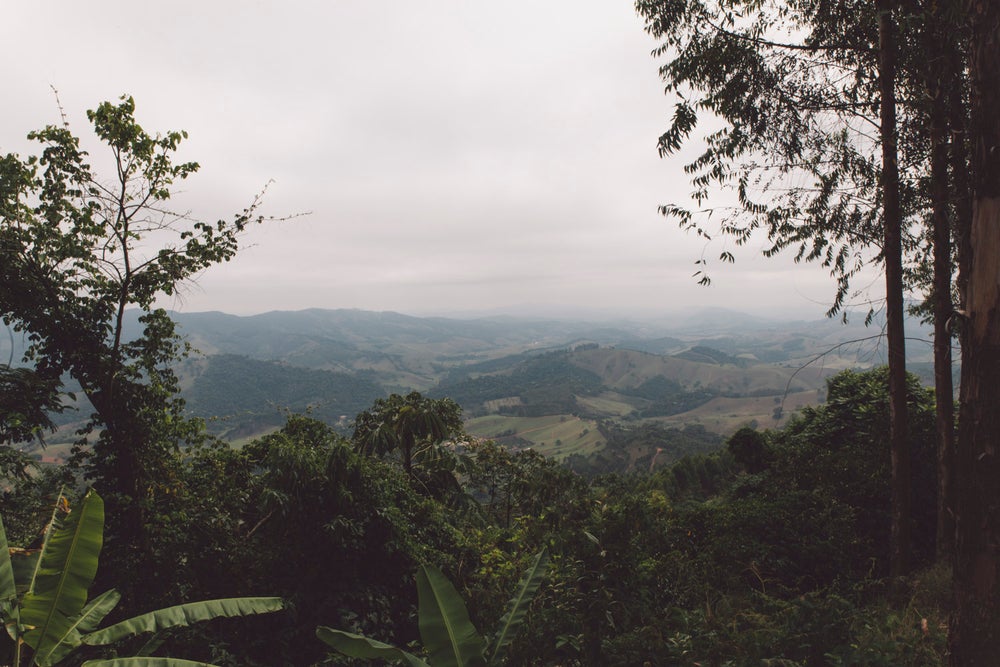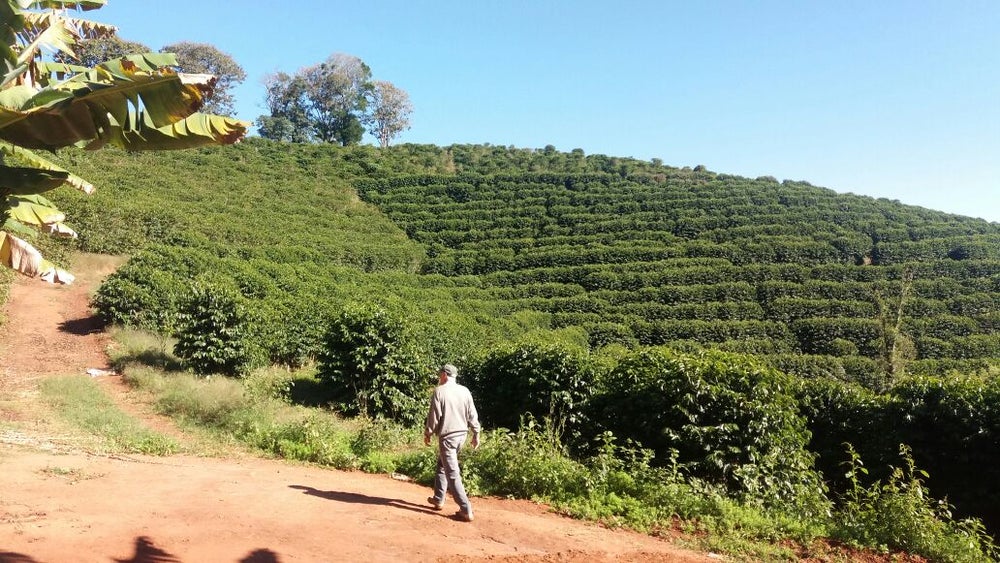About This Coffee
Tarcízio Aldo Zugliani bought Fazenda Sao Francisco da Bela Vista in 1993. Over the years, he has made big improvements to the infrastructure of the farm. He built coffee drying terraces and invested in better processing equipment and rotary dryers. He replanted the farm with young seedlings to increase productivity and quality. Through soil analysis, he also determined specific coffee farming methods and improved input efficacy. All these steps increased overall quality and helped produce this Yellow Catuai Pulped Natural lot, which has a classic cupping profile with soft acidity, yellow fruits, chocolate and a good body.
Harvest & Post-Harvest
There are a growing number of farms in Brazil that are focusing more on cup quality than volume. These farms approach growing, harvesting and processing with a great attention to detail. The altitude and volcanic soil in Brazil are prime conditions for growing the balanced, well-bodied coffees for which the country is famous. Wide, flat farms in many regions make mechanisation easier and allow for reduced production costs, making Brazil one of the few countries with consistently comfortable margins in the face of low world prices.
The relatively flat landscape across many of Brazil’s coffee regions combined with high minimum wages has led most farms to opt for mechanical harvesting over selective hand-picking. In the past, this meant strip-picking was the norm; however, today’s mechanical harvesters are increasingly sensitive, meaning that farms can harvest only fully ripe cherries at each pass, which is good news for specialty-oriented producers.
After harvesting, cherry is pulped and laid to dry in the sun on terraces. After the parchment is dried, it is sent to the COCARIVE warehouse for storage until export and dry milling.
Sustenta+
Sustenta+ is a collaboration between COCARIVE and AgroCP, a fertilizer company focused on renewable fertilizers. Sustenta+ is a new certification that COCARIVE member farmers can attain by focusing on environmentally-sound coffee production techniques.
About COCARIVE
Sucafina has partnered with COCARIVE since 2015.
COCARIVE gives support to its members in all parts of the production chain. Their team of agronomists and technical experts assists with cultivation techniques, machinery, storage and finally commercialization of the beans.
Once parchment is dry, cooperative members send their coffee to the COCARIVE warehouses. The cooperative takes care of grading, commercialization and export. They have their own quality lab and storage and milling facilities in Carmo de Minas.
At the dry mill, where they prepare the coffee for export, COCARIVE has its own laboratory for quality control. Their team of trained cuppers and Q graders makes the first selection based on cup quality. They will verify which lots are suitable and of high enough cup quality for specialty microlots. Their quality control team checks the quality of every lot at a variety of times throughout the dry milling process analyzing both physical green and cup characteristics.
All COCARIVE member farms have the Protected Geographical Indication (PGI) certificate. On top of that, they are all certified by the Brazilian Specialty Coffee Association (BSCA). This certificate is a guarantee from BSCA that every aspect of labor at the farm is legal. It also guarantees the implementation of environmentally friendly practices on the farm during all steps of the coffee production process.
Coffee in Brazil
Just under 40% of all coffee in the world is produced in Brazil - around 3.7 million metric tons annually. With so much coffee produced, it’s no wonder that the country produces a wide range of qualities. Brazil produces everything from natural Robusta, to the neutral and mild Santos screen 17/18, to the distinctive Rio Minas 17/18. In recent years, Brazilian producers have also begun investing more heavily in specialty coffee production. Through our in-country partners in Brazil, including our sister company, we are able to provide a wide range of Brazilian coffees to our clients: from macrolot to microlot.
Today, the most prolific coffee growing regions of Brazil are Espirito Santo, São Paulo, Minas Gerais, and Bahia. Most Brazilian coffee is grown on large farms that are built and equipped for maximizing production output through mechanical harvesting and processing. The relatively flat landscape across many of Brazil’s coffee regions combined with high minimum wages has led most farms to opt for this type of mechanical harvesting over selective hand-picking.
In the past, mechanization meant that strip-picking was the norm; however, today’s mechanical harvesters are increasingly sensitive, meaning that farms can harvest only fully ripe cherries at each pass, which is good news for specialty-oriented producers.
In many cases and on less level sections of farms, a mixed form of ‘manual mechanized’ harvesting may be used, where ripe coffee is picked using a derriçadeira – a sort of mechanized rake that uses vibration to harvest ripe cherry. A tarp is spanned between coffee trees to capture the cherry as it falls.
With the aid of these newer, more selective technologies, there’s a growing number of farms who are increasingly concerned with – and able to deliver - cup quality.

